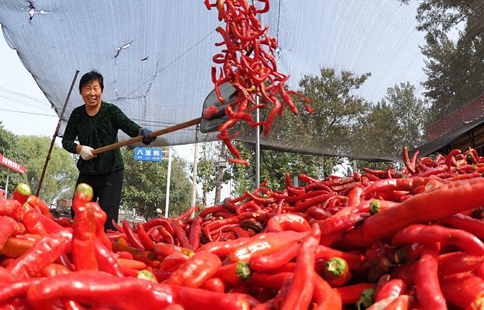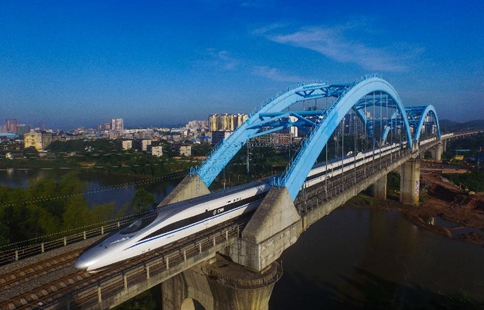BEIJING, Sept. 25 (Xinhua) -- Without a shop assistant, customers can help themselves at the smart convenience store near the Suzhouqiao overpass in Beijing's Haidian District. By simply scanning the QR code on the products with a cellphone, it takes less than one minute to finish the whole process.
The store belongs to Beijing-based smart convenience store operator Xiaomai, which just rolled out a modular smart convenience store program that is easy and inexpensive to promote in communities and commercial buildings. It also partnered with domestic gas station service supplier CM&U to offer smart shopping service to drivers.
Xiaomai is one of the emerging smart convenience store operators in China, which use technology such as the Internet of Things, artificial intelligence and biometric identification to streamline the shopping process and reduce operation costs.
There are about 20 smart convenience stores in about 10 cities, which could register a transaction volume worth 38.94 billion yuan (5.88 billion U.S. dollars) this year, according to iResearch, a domestic market data analysis provider.
Based on international experience, China has already entered the phase with strong demand for convenience stores since 2016, but there are only about 83,000 convenience stores across China, far short of the estimated 600,000 in demand, according to Quan Bin, vice president with Xiaomai.
Chinese convenience store owners had stronger confidence for the sector in the second quarter of this year compared with Q1. However, they were worried about rising cost such as rent, utility bills and labor, according to a report released by the Ministry of Commerce (MOC).
Smart convenience stores post stronger competitiveness in operation cost, efficiency and customer experience thanks to application of technology such as artificial intelligence and mobile payment, but the nascent business model still need more specific regulations and stronger technology support, said Gao Feng, spokesperson with MOC.
The operation cost of smart convenience stores is about one-seventh of their traditional counterparts, while the product prices are generally lower, according to Quan, who says that Xiaomai plans to set up about 30,000 smart convenience stores in about 10,000 communities by 2020.
Gao says that smart convenience stores help to drive retail innovation and make it easier for community dwellers to shop, and the MOC will release guidelines for retail technological innovation and representative cases in the future.
"Generally speaking, the government and industrial associations are taking a nurturing stance towards smart convenience stores and are ready to help the emerging business grow in an orderly manner," Quan said.
















